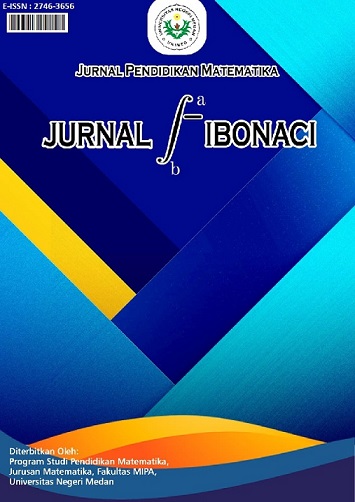The Effect of Spatial, Logical Mathematical and Emotional Intelligence on Students’ Mathematics Learning Achievement
Main Article Content
Abstract
The aim of this study is to assess the effectt and respective contributions of spatial, logical mathematical, and emotional intelligence on students' mathematics learning achievement. This research adopts an ex post facto methodology with a quantitative approach. The study population consisted of 240 ninth-grade students at MAN 1 Medan. A probability sampling technique, specifically random sampling, was employed to select a sample of 70 students from classes IX-5 and IX-7 at MAN 1 Medan. Data collection involved using spatial intelligence tests, logical-mathematical intelligence questionnaires, and emotional intelligence assessments. Mathematics learning achievement data were gathered from students' final exam scores in the even semester. The data were analyzed using descriptive statistics and inferential statistics, employing multiple linear regression analysis as the research design. The findings of the study indicate the following: (1) There is a statistically significant positive effect of spatial intelligence, logical-mathematical intelligence, and emotional intelligence on students' mathematics learning achievement, both partialy and simultaneosly. (2) Spatial intelligence contributes 24.1% to students' mathematics learning achievement. (3) Logical-mathematical intelligence contributes 39% to students' mathematics learning achievement. (4) Emotional intelligence contributes 10.2% to students' mathematics learning achievement. (5) Collectively, spatial intelligence, logical-mathematical intelligence, and emotional intelligence contribute 73.3% to students' mathematics learning achievement and the remaining 26,7% is effected by factors beyond the scope of this study
Article Details
Section
Articles

This work is licensed under a Creative Commons Attribution-NonCommercial-ShareAlike 4.0 International License.
Authors who publish articles in this journal agree to the following terms:
- Authors retain copyright of the article and grant the journal right of first publication with the work simultaneously licensed under a CC-BY-SA or The Creative Commons Attribution–ShareAlike License.
- Authors are able to enter into separate, additional contractual arrangements for the non-exclusive distribution of the journal's published version of the work (e.g., post it to an institutional repository or publish it in a book), with an acknowledgment of its initial publication in this journal.
- Authors are permitted and encouraged to post their work online (e.g., in institutional repositories or on their website) prior to and during the submission process, as it can lead to productive exchanges, as well as earlier and greater citation of published work (See The Effect of Open Access).
